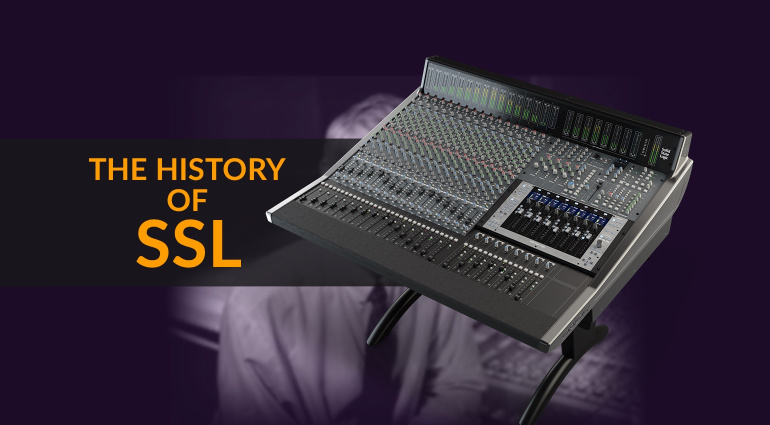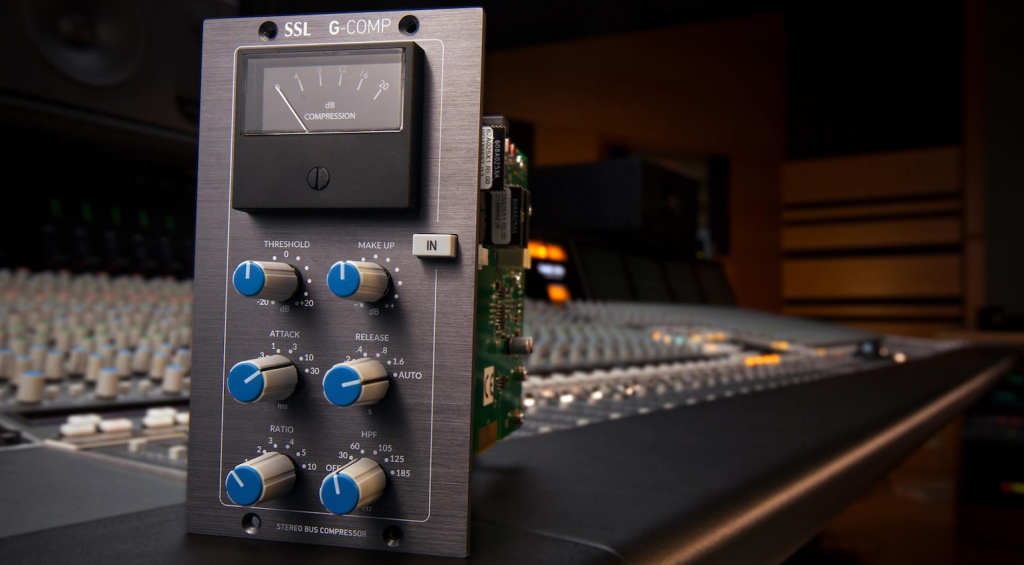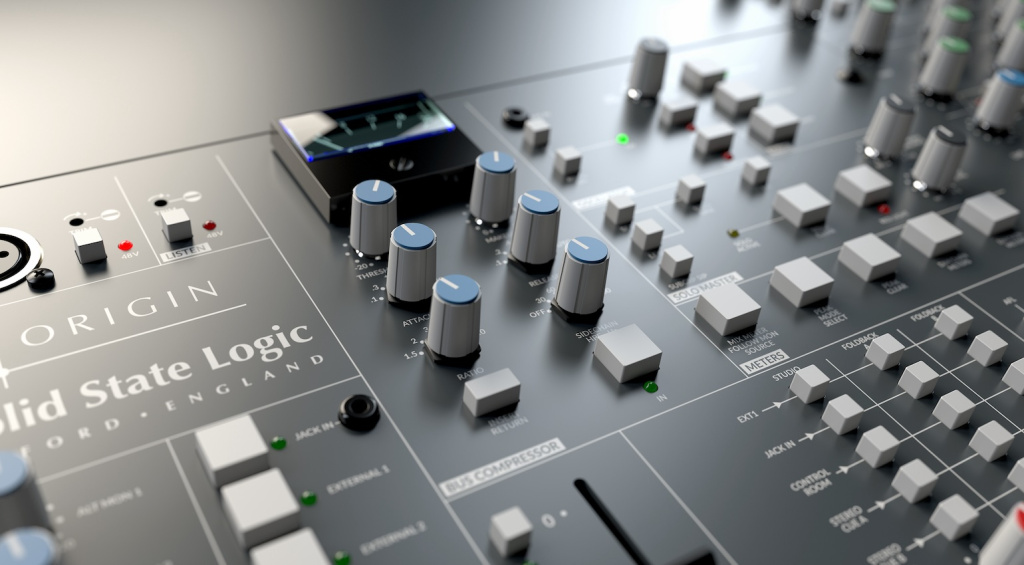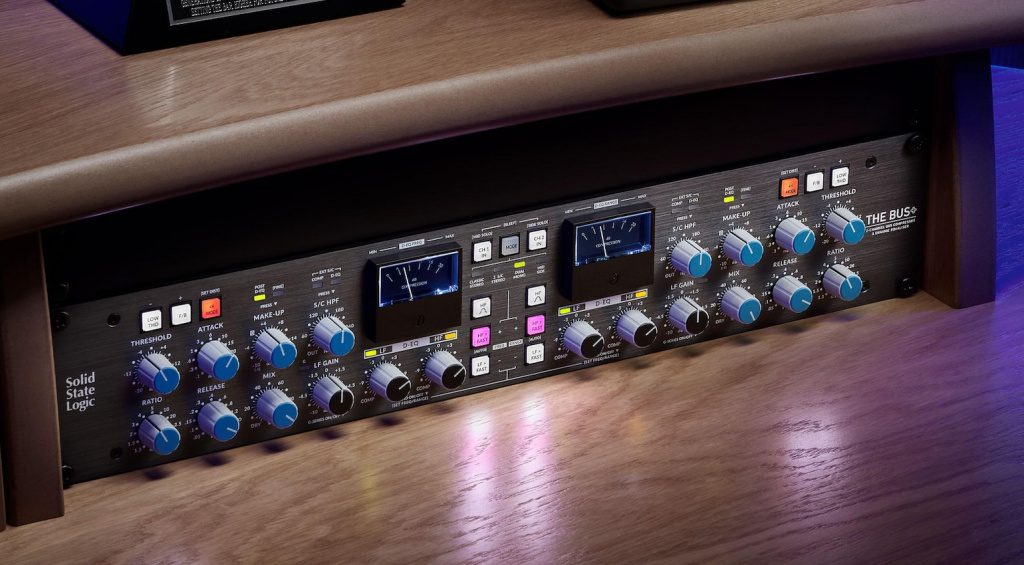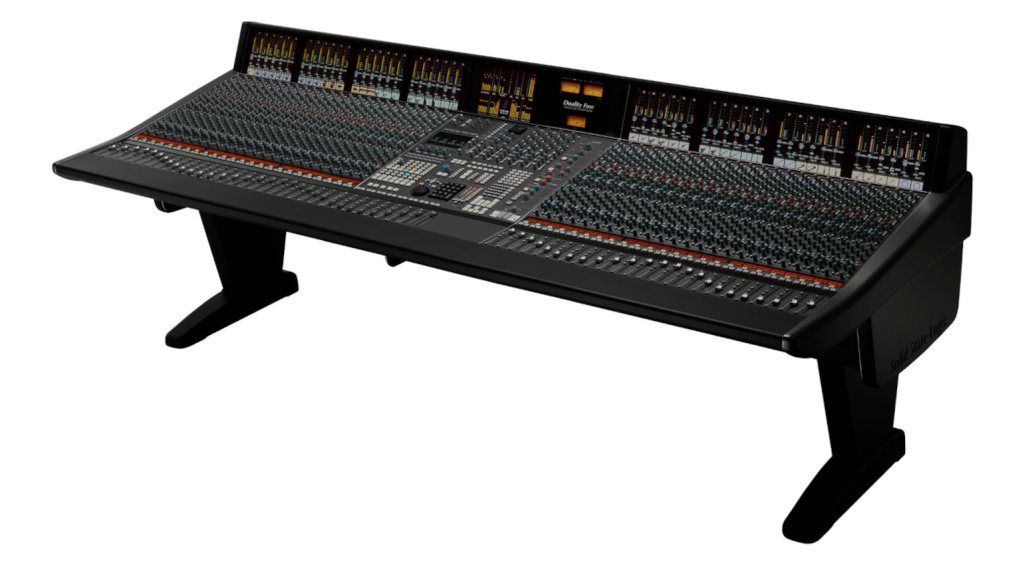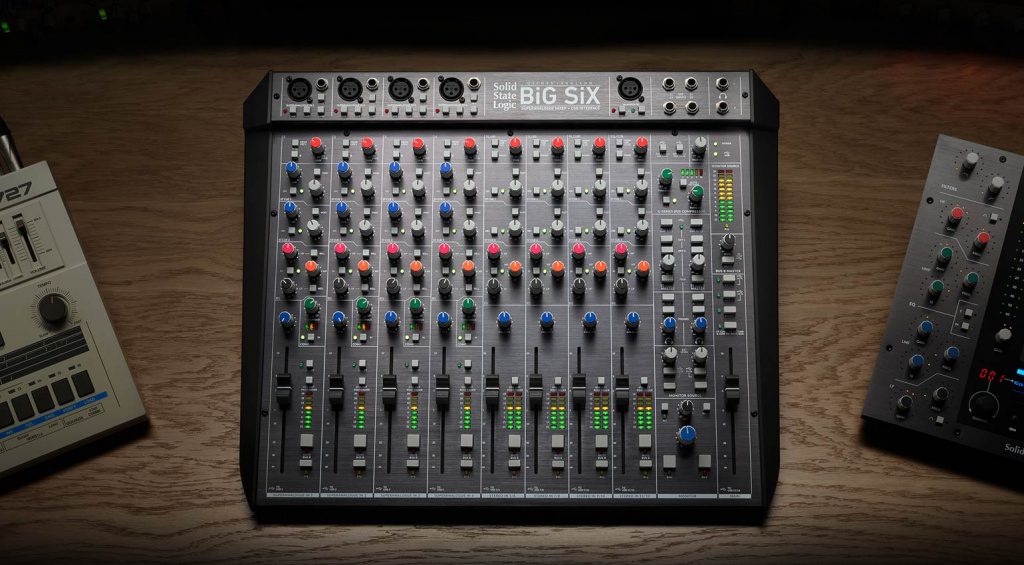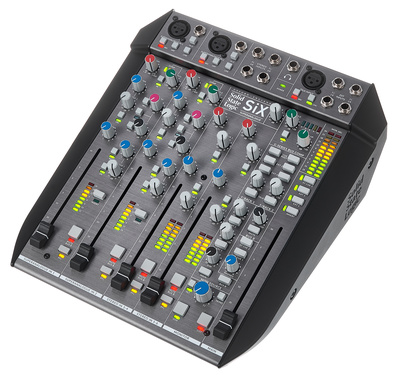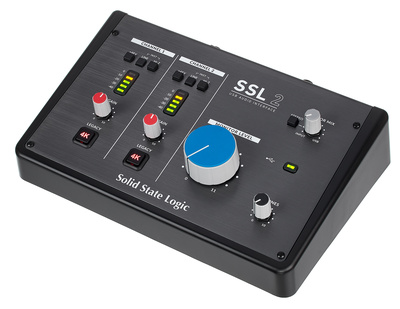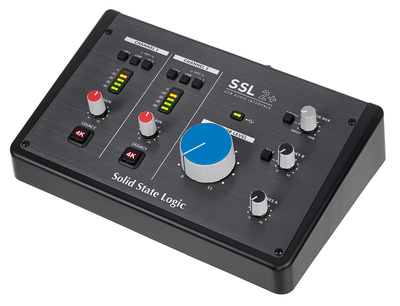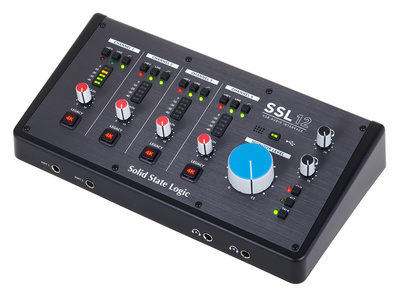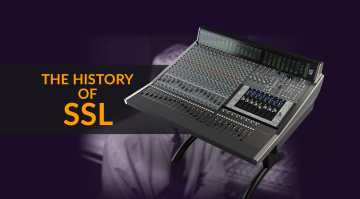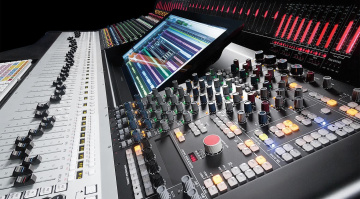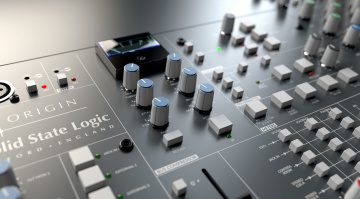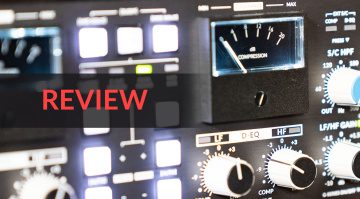The History of SSL: From Consoles to Creators
The great British console company.
In the modern recording era, Solid State Logic has an impact on the music industry by constantly evolving. We look into the History of SSL!
The story of SSL begins in 1969, when a young Colin Sanders began recording and releasing folk and organ music with his label Acorn Records in Oxfordshire, UK.
After designing and building a valve amplifier for the British subsidiary of the Hammond organ company, Sanders became involved in a new project. This time, he was asked to build a switching system for the new electronic pipe organ at Glasgow Cathedral.
Instead of using wiring, relays, and switches exclusively, Sanders’ design used diodes and transistors which saved weeks of time and effort, as well as becoming a reliable template for future designs.
The History of SSL
Like his earlier designs, Sanders moved on to recording consoles out of necessity when he built Acorn Studios in Stonesfield, Oxfordshire. This became the home of the first-ever SSL console that would lay the foundations of the company’s direction, outside of folk music.

By 1976, Sanders had designed and built the first two SSL 4000A consoles, with six SSL 4000B consoles completed the following year. These would find homes in studios in Europe and the US, as well as Virgin Records’ Townhouse Studios in London. It was here that Phil Collins famously recorded his debut album, Face Value.
Apart from its now sought-after sound, the B-series was one of the first designs to combine an onboard computer with automation in an in-line console. Remember that at this time, the Neve 80 series ruled the roost so being noticed was more than a big deal.
- Sound Like Phil Collins

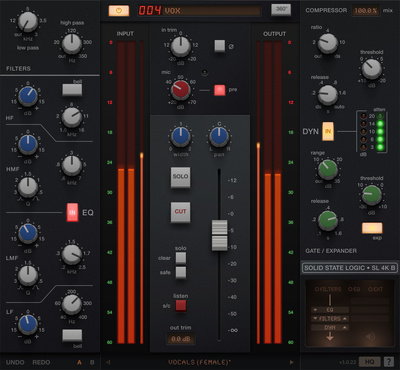

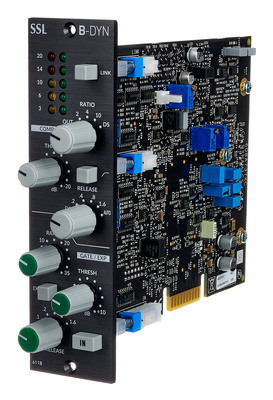
The SSL SL 4000 E Console: The Breakthrough Board
The SL 4000 E Series console was launched in 1979 and was the SSL product design that truly shook the industry. Its dual-inline design offered dynamics and EQ per channel with VU meters, four main outputs, and a flexible 32-bus routing system.
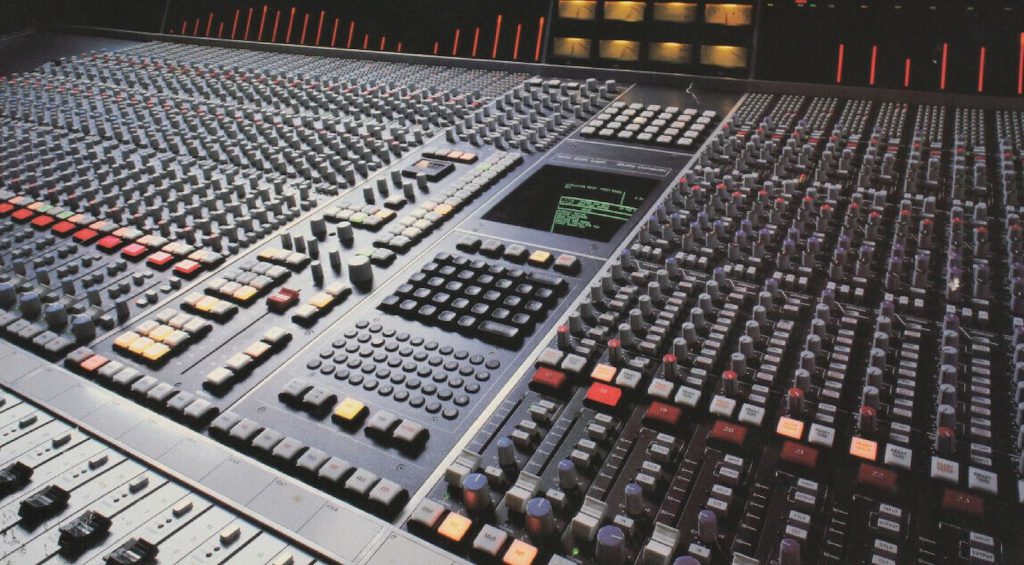
The E series onboard computer had a 430 processor and used massive 8-inch floppy disks for its automation and Total Recall system. Some other notable features include the Brown EQ and a VCA card equipped with the “black” DBX 202 VCA.
Along with the now-famous bus compressor from the B-series, the E-series had a function called VCA trim. This meant that you could set the console’s operating level for your style of mixing. Moreover, it encouraged users to push levels to produce the fabled harmonic distortion these consoles became known for.
- More about Analogue Consoles

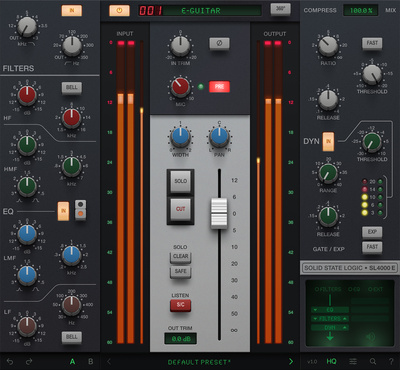

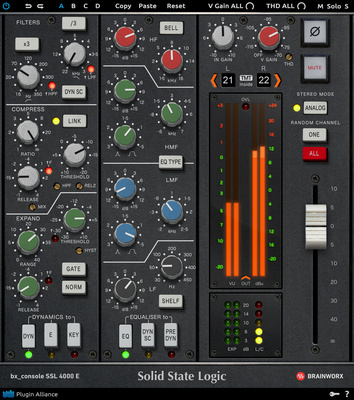

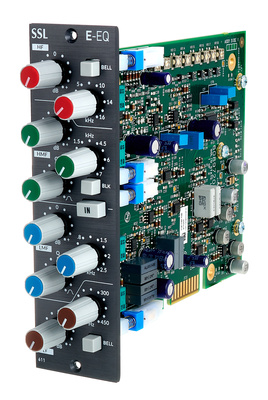
The Glue Compressor: The SSL Bus Comp
First implemented in the B-series in 1976, the SSL bus compressor became an absolutely essential part of almost every step of the recording process. From tracking to mixing down, the responsive VCA compressor with its simple controls was a major part of the console’s sound.
Years later, it became available as a separate 500-series module in the form of the G-Comp. This was particularly exciting for DAW users, as it allowed you to add the analogue SSL glue sound onto mixes that were created digitally.
To this day, the SSL bus compressor continues to evolve in all directions, with notable recreations from manufacturers like Dramastic Audio. Moreover, SSL has expanded its design with plug-ins like the G3 MultiBusComp and hardware units such as the versatile Bus+ processor.
- More about SSL Bus Compressors

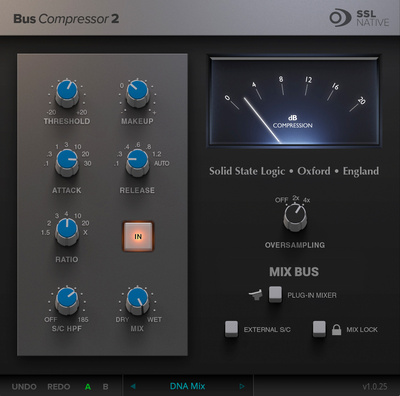



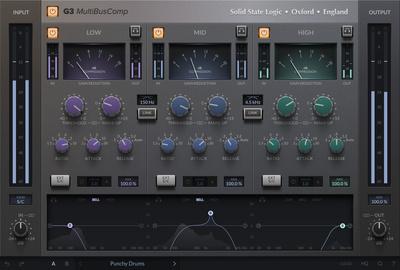

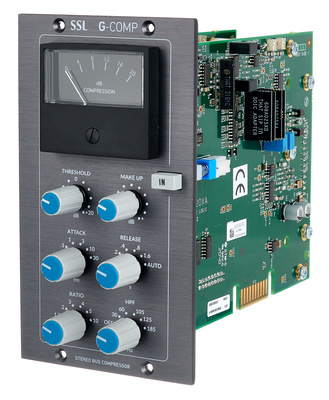

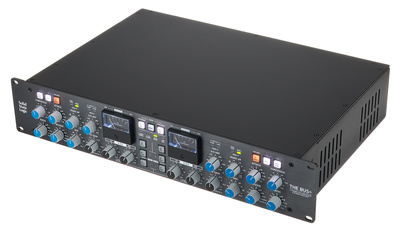
SuperAnalogue Technology
Solid State Logic’s domination of the recording and audio post-production industry began in the 1980s, and its legacy continues today with the SuperAnalogue technology within the mixers.
This is implemented in the SL 9000 J series console of the mid-1990s and the flagship Duality hybrid mixer and DAW controller with its δelta-Control (δ-Ctrl) system, all the way to the SSL SiX project studio mixers,
The SuperAnalogue signal path is DC-coupled and capacitor-free, offering a superbly wide frequency range and astonishingly low distortion levels. Although the average listener probably couldn’t differentiate, the resolution exceeds that of even the best high-end AD/DA converters.

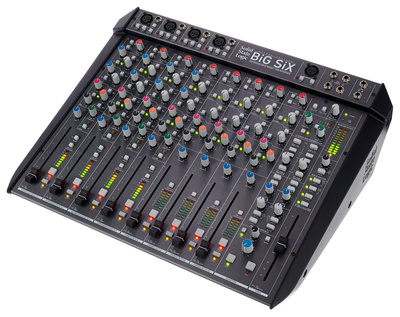

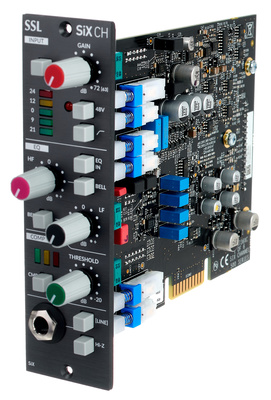
Innovations in Digital
Aside from the esteemed analogue circuitry SSL is known for, the company is equally renowned for incorporating digital technology for even more versatility.
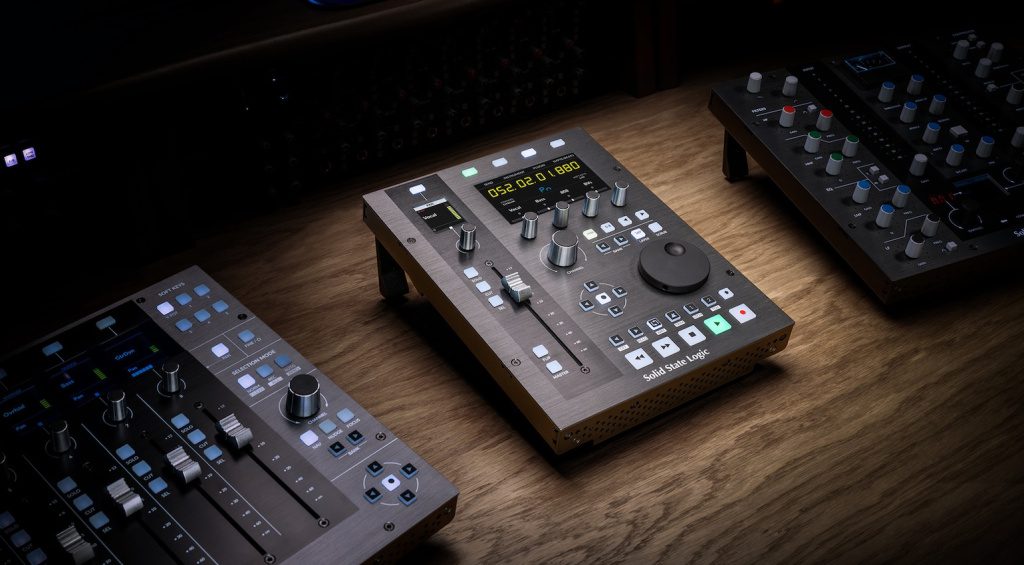
From the Sigma DAW-controlled summing mixer to the more recent PureDrive SuperAnalogue preamps, SSL has added digital connectivity and control in areas that streamline your workflow.
Moreover, in the DAW realm the SSL Native plug-in range is always expanding to offer new solutions, while the SSL DAW-controller series remains one of the best available for any DAW.



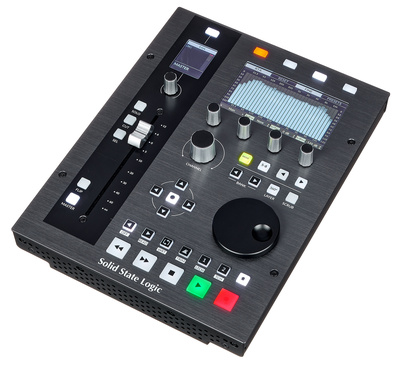
SSL Today
In the last 10 years, SSL has made massive strides in the live sound and broadcast industries, with console designs that offer incredible flexibility and audio integrity.
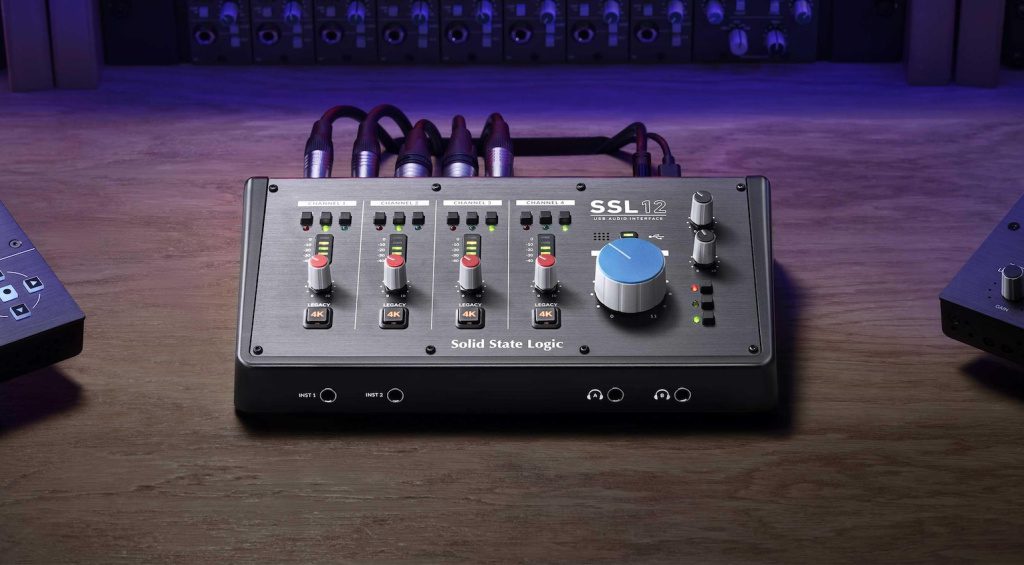
However, perhaps even more relevant is the way the manufacturer has embraced the home recording revolution and the creator boom. Here, affordable solutions like the SSL 2, 2+, and 12 audio interfaces have helped a new generation of users create music.
Furthermore, with developments like the acquisition of Harrison Audio, SSL can continue to add more value in this area in future. The console era may be long gone, but the company remains focussed on creative innovation in each aspect of the audio industry.

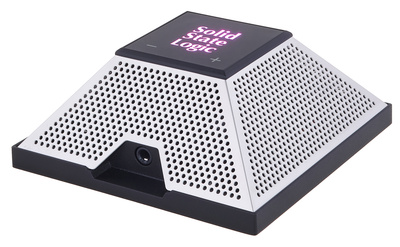
More about The History of SSL:
- SSL Official Page
- The Colin Sanders Business Innovation Centre
- More from SSL
*Note: This article contains promotional links that help us fund our site. Don’t worry: the price for you always stays the same! If you buy something through these links, we will receive a small commission. Thank you for your support!

 4,9 / 5,0 |
4,9 / 5,0 | 